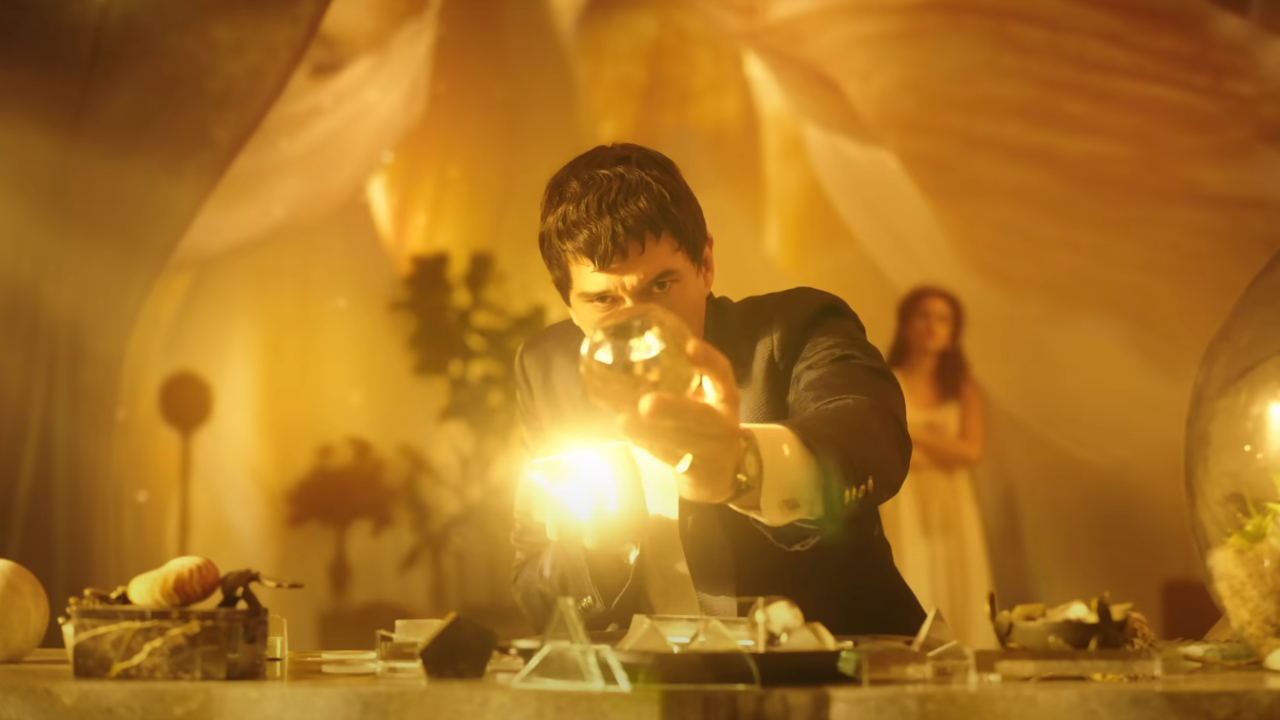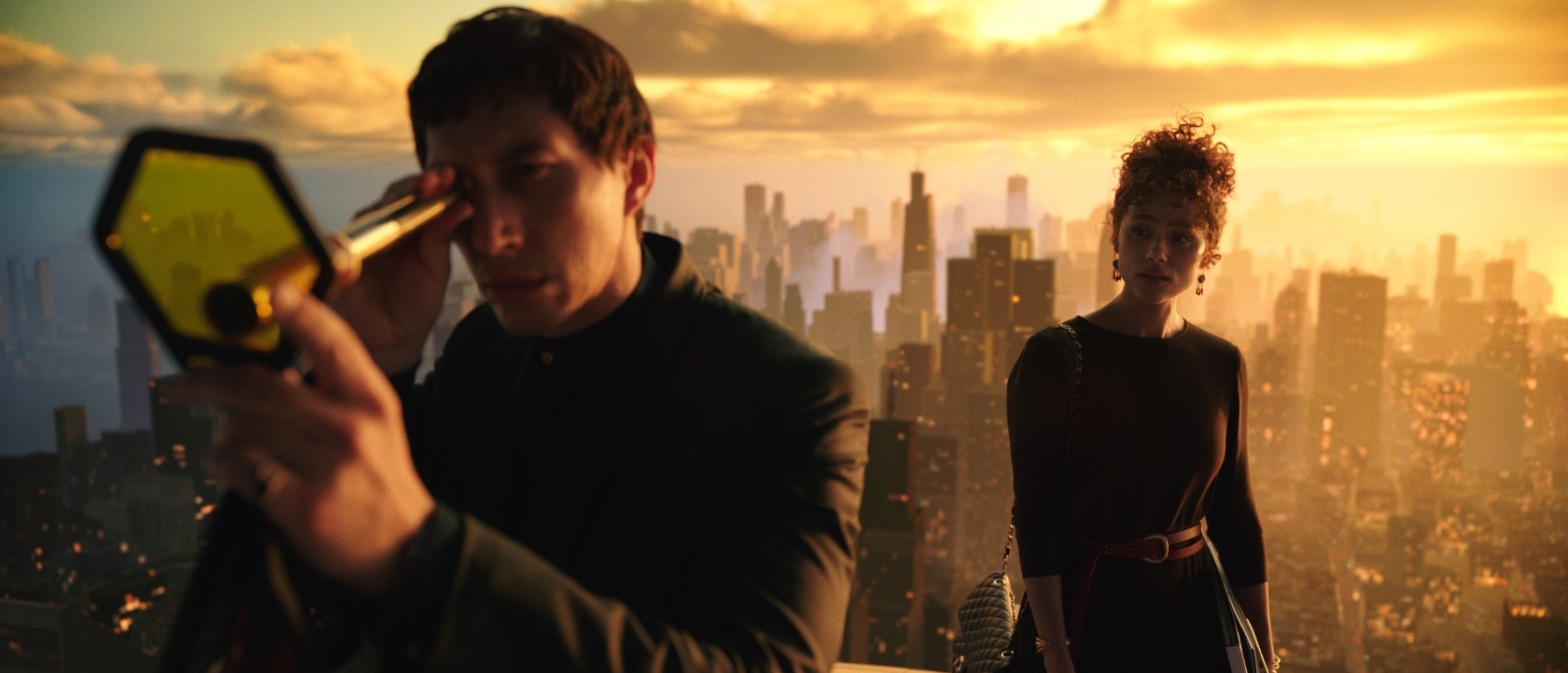There has been a lot of talk in recent years about the importance and value of “the theatrical experience.” If there is one thing that Francis Ford Coppola’s Megalopolis does right, it reminds one that there is nothing quite like the theatrical experience, especially when watching one of the most unique pieces of cinema in years.

Release Date: September 27, 2024
Directed By: Francis Ford Coppola
Written By: Francis Ford Coppola
Starring: Adam Driver, Nathalie Emmanuel, Giancarlo Esposito, Aubrey Plaza, and Shia LeBeouf
Rating: Rated R for sexual content, nudity, drug use, language and some violence.
Runtime: 138 minutes
MORE: Megalopolis: What We Know About Francis Ford Coppola's Star-Studded Epic
Francis Ford Coppola has been working on Megalopolis for the better part of four decades. Over the years, there were various attempts to make it, but finding a studio willing to produce it proved challenging. Finally, after selling a portion of his wine empire, Coppola financed the film himself, and now the epic Megalopolis is here, and what a movie it is. It pushes boundaries, and challenges perceptions. It questions the present and the future. It's a film about incredible ambition told with incredible ambition.
Megalopolis’, subtitled A Fable, takes a look at modern America and infuses it with elements of the Roman Republic. Mayor Cicero (Giancarlo Esposito) leads the city of New Rome, a thinly veiled New York that is and is not America (it's confusing, and not particularly important). He is in conflict with Cesar Catalina (Adam Driver) the leader of the Design Authority, which is in the process of remaking the city using a revolutionary new material of Catalina's discovery, Megalon.
Cesar sees the potential to create a utopia out of the failing city. Cicero sees the work as dangerous to the people as they exist today. Things get more complicated when Cicero's daughter Julie (Nathalie Emmanuel) begins a relationship with Cesar.
Megalopolis is more a metaphor than a movie.
I’m afraid that in trying to summarize the plot of Megalopolis I may have given readers the impression that Megalopolis has… a plot. You may think there’s a story being told here. That is technically true, but it needs to be said at the outset that the Megalopolis story can be hard to follow primarily because the movie isn’t that concerned with the story being told.
Megalopolis is a metaphor. It exists to compare the Roman Republic’s transition to a Roman Empire to modern American society, which Coppola clearly sees heading down the same path. The utterly unsubtle names of the characters, the sets, and the costumes, are all in service of driving home the idea of this metaphor. It is far more important than the characters' drama being told, so when the two come into conflict, which happens frequently, the metaphor takes precedence.
This hinders the story in many ways. In a movie that is littered with characters, many of them go nowhere. Scenes introduce ideas that seem like they’ll come into play later, and then simply don’t. Curious about this strange new element called Megalon and what it is or why it matters? Sorry, that won’t ever be addressed, for the simple reason that, again, it doesn’t actually matter.
Adam Driver and the rest of the cast are committed to the spectacle.
Even at a nearly two-and-a-half-hour runtime, Megalopolis has a lot to cram in, and things move so quickly you barely have time to contemplate one scene before the next goes flying by. It’s loud and brash and it never quits.
But what Megalopolis loses in narrative it tries to make up for in visual spectacle, and it does a remarkable job at that. It’s an incredible-looking film. Shot largely against greenscreens, the film embraces the unreality of it all rather than trying to make things look photoreal, setting scenes against some incredible, and sometimes impossible backdrops.
The separation from reality extends to the characters. Adam Driver’s first major scene includes him reciting Hamlet at length and if the entire script had been written in iambic pentameter it would have fit. None of the dialogue from any character feels the least bit natural, but if it did, it would feel entirely out of place in the world of New Rome with its massive excess.
The greatest strength of Megalopolis is its cast. It’s clear that every one of them was fully committed to the absolutely wild ideas that Coppola was putting together. The performances are what make the world of New Rome feel as real as it can be. Shia Lebeouf is a particular standout as Cesar’s cousin Clodio. Aubrey Plaza, who has the best character name of the year, Wow Platinum, owns the screen in every scene she is in as a power hungry media personality.
Megalopolis tries to do too much, but you’ll never see anything like it.
Megalopolis feels like a movie designed to be seen more than once, and from the director who has given us at least four different versions of Apocalypse Now, that’s not that surprising. On a single viewing, however, many viewers may not get much out of it. There's simply so much going on that processing it all becomes a constant battle.
And yet, there’s something admirable about the absolute ambition on display in Megalopolis. Francis Ford Coppola clearly had something he wanted to say, something he wanted to do, and he has certainly done it here. It’s difficult to imagine that he left anything on the table. One experiences many emotions watching Megalopolis, but boredom is never one of them.
Of course, sometimes some of the most creative minds can end up out in the weeds when there isn't some level of oversight to rein them back in. When you have the freedom to do whatever you want, sometimes you create art, sometimes madness. In this case, it's some of both.
There are moments of pure beauty. The creativity on display can take your breath away at times. And the ideas at the heart of Megalopolis are ideas worth considering. And then sometimes you just ask yourself "What the hell did I just see?"
Maybe Megalopolis is a revolution in filmmaking. Maybe not. It's a movie that will undoubtedly leave many audiences frustrated, but sometimes that's what happens when great art challenges us. That will likely be a question for the future, not the now, and as the film itself says "Don't let the now destroy the forever."

